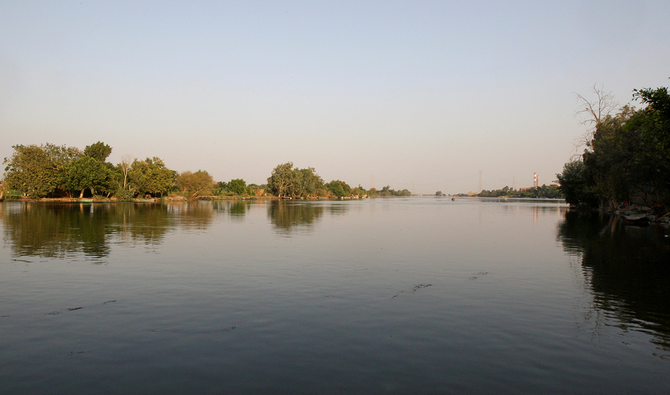CAIRO: Egypt has warned people about Nile flooding, telling local authorities to take precautionary measures to minimize damage and loss of life.
The Ministry of Irrigation informed various governorates that some of their land risked being submerged as a result of flooding and high water levels.
Egyptian Minister of Irrigation Mohamed Abdel Aty said on Tuesday that the warnings were being issued so that people could take preventive steps and become aware of the expected dangers, despite the fact they were living or farming illegally in the at-risk areas.
He directed the heads of central departments to coordinate with governors and local authorities and for them to inform ministry agencies about infringements and violations on all waterways, especially on the Nile River course, with removal decisions to be sent to military prosecution offices for legal action.
The minister said that there should be a daily report on the land and buildings affected by high water levels.
The El-Beheira governorate sent information to local units on the Nile in the Rosetta Branch, stressing that measures should be taken in response to rising river levels in the coming days.
The leaflet included instructions to evacuate homes, buildings, livestock pens and fish cages. It also called on all residents of Kom Hamada, Itay El-Barud, Shubrakhit, Rahmaniyah, Mahmoudeya and Rasheed, to evacuate their homes and all buildings, livestock pens and fish cages.
“The lands threatened by drowning from the river overflowing are initially the property of the Ministry of Irrigation and have been subjected to building and agricultural encroachments by some people and despite, these violations, the Nile Protection sends warnings to the agricultural administrations and locals to alert farmers of an expected increase in the water level to avoid losses,” Amer Shukry, a ministry official in El-Beheira, said.
Agricultural land in the Kom Hamada district was submerged at the start of September as a result of high water levels.
The head of the General Authority of the High Dam, Hussein Jalal, said that the ministry was ready to face the most violent flood in Egypt’s history.
He explained that it had been fully prepared to deal with the flooding since last May, and the priority was to ensure the safe level of collected water behind the High Dam and its discharge to waterways according to the attributed rate.
Jalal confirmed the technical conditions of the High Dam and Lake Aswan and the full readiness of all dams and overflows, explaining that the dam was able to deal with the current flood.


























